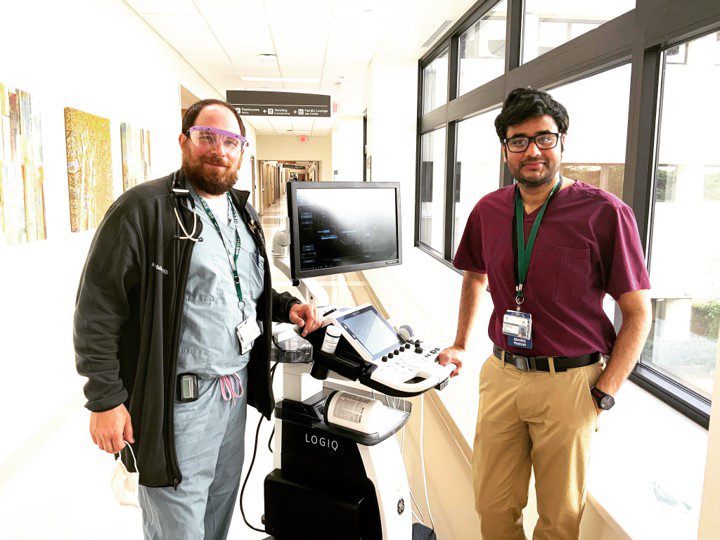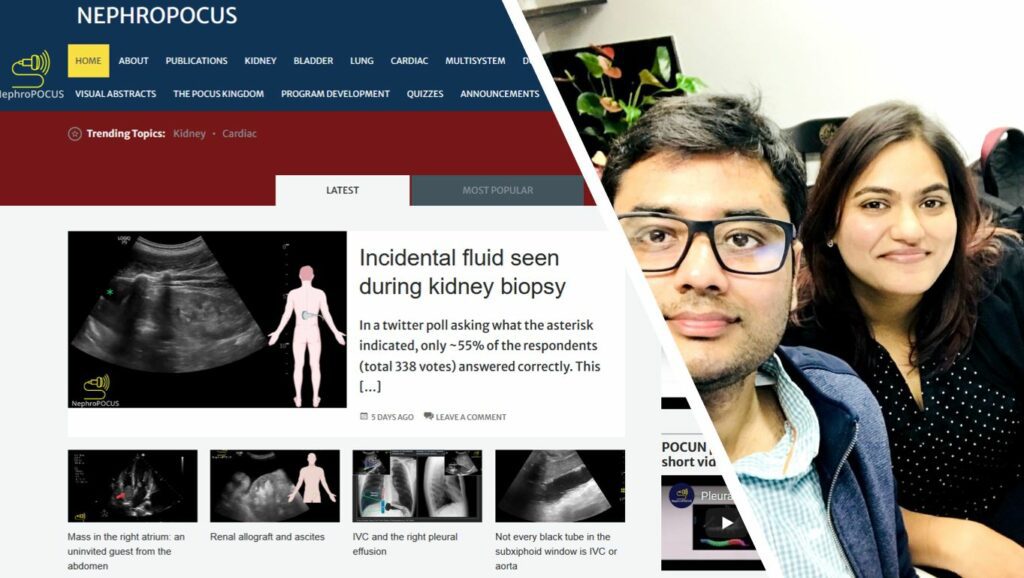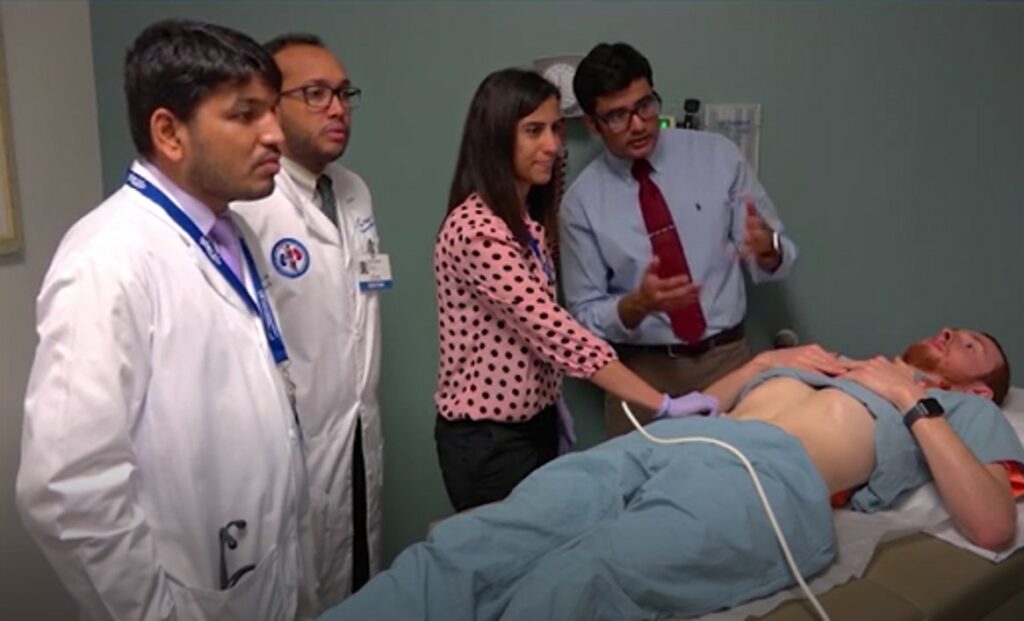Why POCUS?
My interest in point-of-care ultrasound (POCUS) began when I was a nephrology fellow at the University of Florida (UF). I saw a patient with acute renal failure in the emergency room and asked for an ultrasound to exclude urinary obstruction but was surprised to learn that the emergency physician has already performed it. Having done internal medicine residency at a community hospital in New York, I was not familiar with non-radiologist physicians performing an ultrasound at the patient’s bedside for anything other than procedural guidance. Many a time, we order kidney ultrasound just to answer a simple question such as ‘what is the kidney size’? ‘is there a urine blockage’ etc. and if the nephrologist treating the patient can do it at the bedside or in the clinic, it would be awesome, I thought.
Towards the end of my fellowship, I attended a kidney ultrasound course at Emory University, where I acquired some hands-on experience. When I decided to stay back as faculty at UF, the division leadership welcomed the idea of setting up an ultrasound teaching program for the nephrology fellows. Soon, we were able to procure an ultrasound machine for our division. I scanned at every possible opportunity to enhance my skills and gained confidence in reporting the studies by reviewing the radiology-performed images and interpreting them on my own. I also shadowed sonographers to enhance Doppler ultrasound skills, get an idea of renal artery stenosis evaluation, etc.

In the meanwhile, in addition to teaching nephrology fellows, I developed a renal ultrasound curriculum for internal medicine residents during their ambulatory rotation block, which was met with an overwhelmingly positive response. Evaluation of fluid volume status using POCUS has piqued my interest during these interactive sessions with the residents. Nephrologists often deal with patients with complex fluid and electrolyte disorders. So, it made sense that we utilize POCUS to assess their volume status and guide treatment more objectively. However, I did not find any course/program for nephrologists that focused on POCUS-assisted hemodynamic assessment. So, I resorted to a variety of resources including free and paid online educational material, online certification courses as well as in-person workshops intended for different specialties to learn multi-organ POCUS.

During all this time, I was active on Twitter sharing educational content to generate interest among nephrologists and other physicians in this much-needed skill. I always believed that teaching is the best way to learn. Though there was a good response to the tweets, I realized that they are short-lived, and the reach is limited to only those who know about the existence of ‘Medtwitter’. Then with the suggestion and support of my better half Deepti, I created the website, NephroPOCUS.com, which eventually evolved as an award-winning POCUS teaching tool for nephrologists. What is unique about this tool is that in addition to recorded lectures and infographics, it contains brief notes on the real-life interesting POCUS cases I have seen in my practice, which is like doing virtual rounds with me (nephrologist). Simultaneously, I have been writing blog posts for the Renal Fellow Network, which further drew the attention of nephrologists towards POCUS. In 2020, I joined the Medical College of Wisconsin (MCW) Nephrology as faculty and director of clinical imaging. Of note, MCW was the first institution in the United States to offer POCUS fellowship for Emergency Medicine physicians. I look forward to expanding my FOAMed (Free Open-Access Medical Education) activities to reach a wider audience while continuing to learn more sonographic applications.

About the Author
Dr. Abhilash Koratala, MD, FASN
Director of Clinical Imaging, Nephrology at Medical College of Wisconsin
Dr. Koratala is the Founder & Director of www.Nephropocus.com. Dr. Koratala is also a board-certified Nephrologist and ASH specialist in clinical hypertension. Point of care ultrasonography (POCUS) is his primary academic interest, particularly fluid volume status determination using lung ultrasound focused echocardiography and Doppler-derived venous waveforms.
Dr. Koratala has designed and developed a comprehensive diagnostic POCUS curriculum for Nephrology fellows and published our institutional experience in the American Journal of Kidney Diseases.
He strongly supports digital scholarship, currently author a series of blog posts for the Renal Fellow Network on ultrasonography, and maintains an award-winning website/tool (NephroPOCUS.com) as well as a Twitter profile (@NephroP) dedicated to POCUS education.
Dr. Koratala has a keen interest in scholarly activity and authored over 100 scientific articles in peer-reviewed medical journals.

